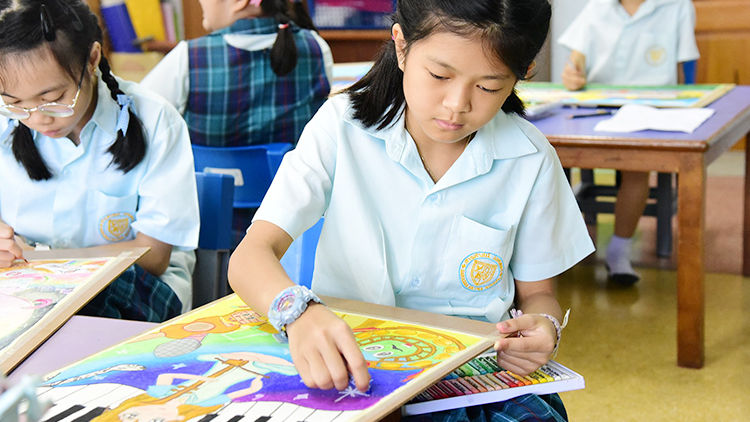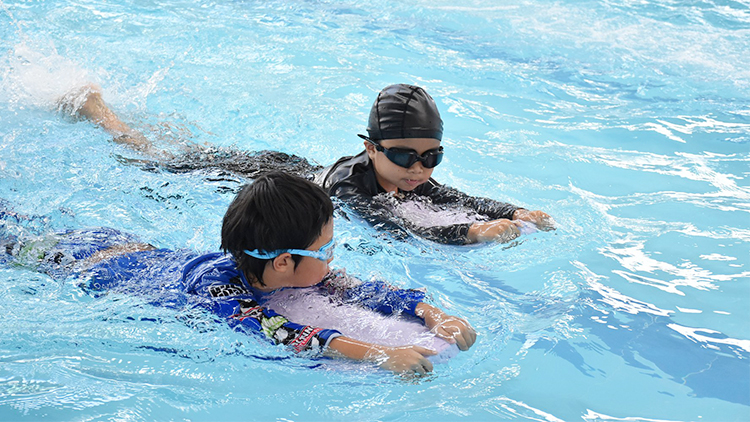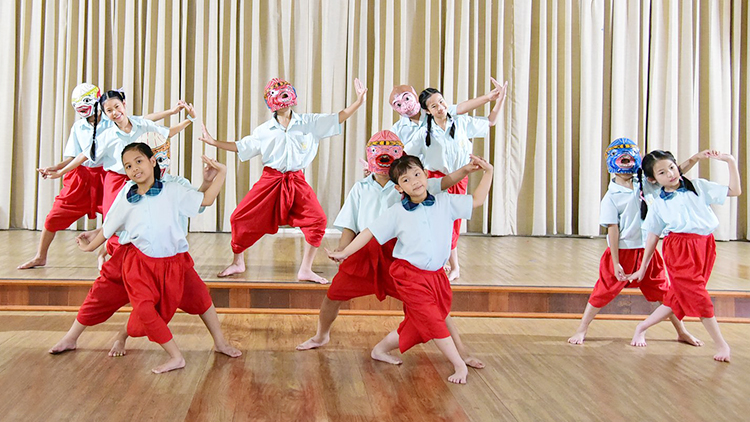
There are eight Thai subject groups: Thai Language, Mathematics, Science, Social Studies, Religion, Cultural Studies, Physical and Health Education, Music and Art. These subjects are important general knowledge required by the Thai Ministry of Education for all students in Primary Schools.
As for English subjects, the bilingual program has set English as a second language. We focus on allowing students to learn English from our foreign teachers who are providing high standard education. In addition, School also provides Chinese and Japanese languages as a third language.
The Student Development Activities are organized to meet the needs and interests of the students. They are provided in addition to the eight standard subject groups. The objective of these additional activities is to encourage and develop student knowledge by participating in activities such as Scouts and Girl Guides and M.I. Activities (Multiple Intelligences).
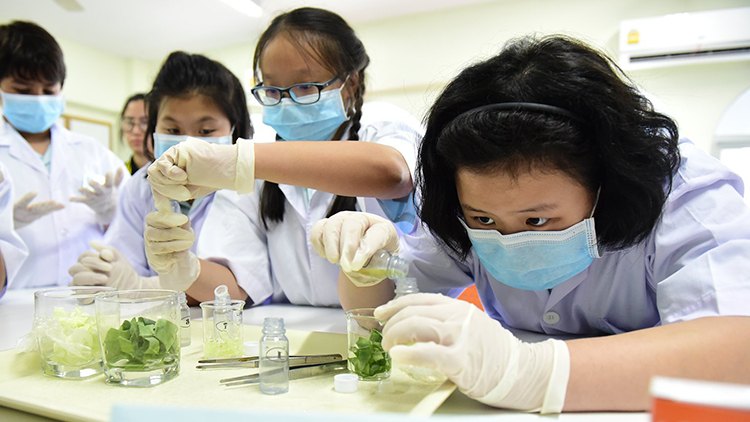
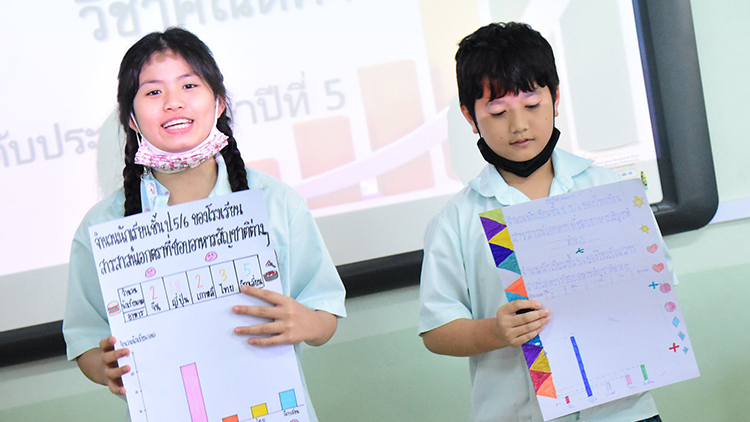
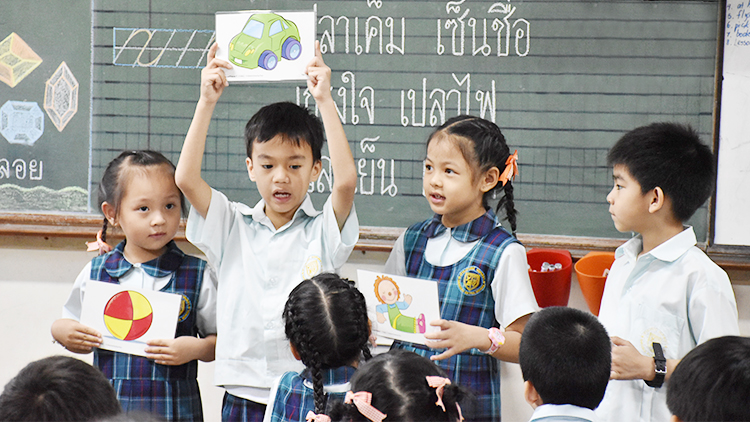
The Extra Class: the Second Generation Project is launched for students in Primary and the first years of Secondary to develop their English competence and to prepare Thai students for the next step once the country enters the ASEAN Community.
The curriculum will be a bilingual system (Thai and English) with the ratio of classes in English and Thai for each class.
Primary Level (Year 2 - 6) : There will be additional English classes to enhance the students’ competence in using English for academic purposes and communication. The ratio of English to Thai lessons for the Extra Class Project will be according to the table below.

Remarks :
1. The ratios in the table are the % of classes in English: Thai compared to 100%* (Subject to changes according to appropriateness.)
2. Subjects in English that are taught by foreign teachers and use English as the instructional language are English, Mathematics, Science, Social Studies, Art and P.E. (Physical Education)
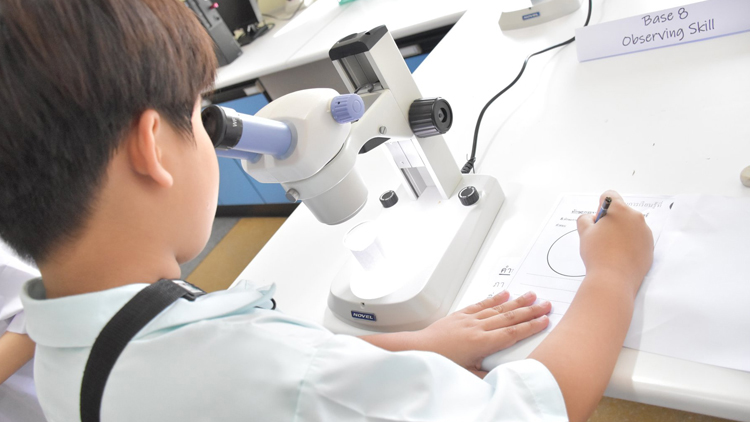
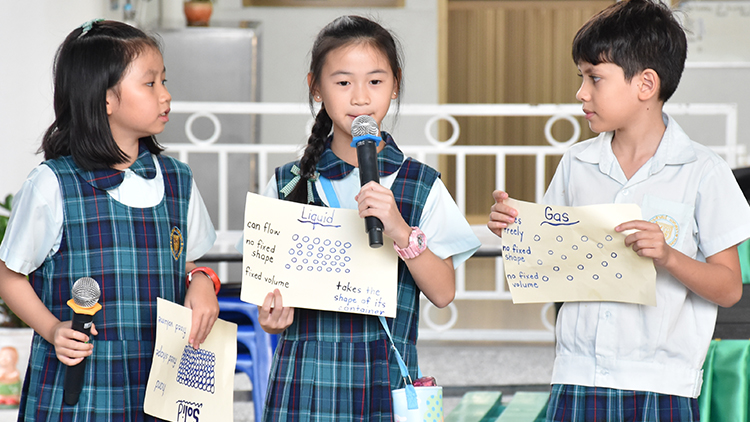
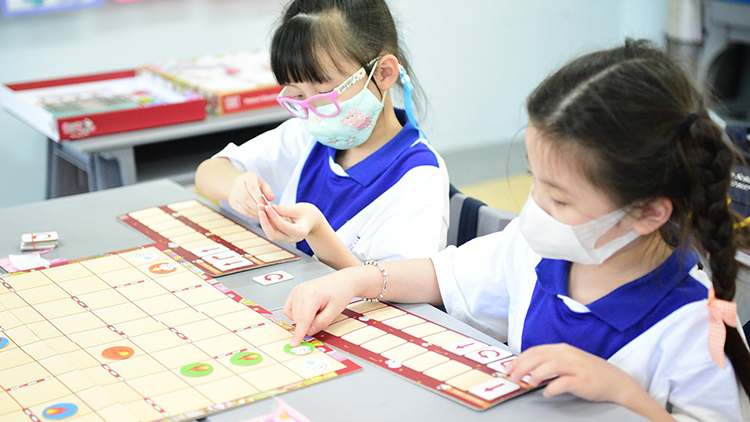
The contents of Music Class course
Primary School Year 1 - 3
Students will learn the basics of Thai music and Thai traditional music taught by Thai music teachers. In this class, students will learn how to read, write and pronounce musical notation. Students will also learn how to sing in English, taught by our foreign teachers.
Primary School Year 4 - 6
Students in Year 4 may choose to learn music of their interest, either a Thai or Western instrument. They may choose a lead instrument of their choice that they can profess and develop to a higher level over the next study year. It is recommended for students not to change the lead instrument every year because he or she will not be able to progress in a particular instrument.
Music instruments selection guidelines
1. Explore the basic knowledge, potential and personal interest to identify readiness in different areas.
2. Evaluate readiness by testing ability and skills to the right instruments.
3. Develop skills in the chosen instrument
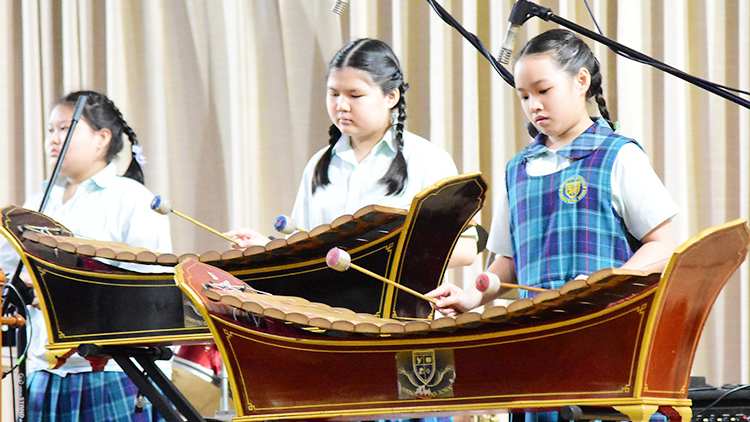
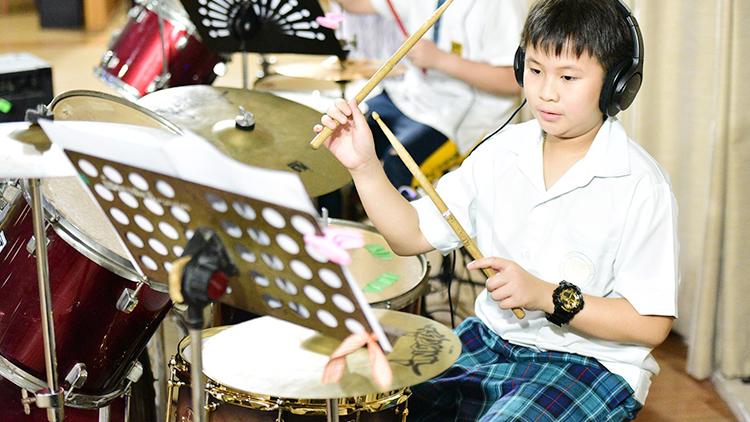
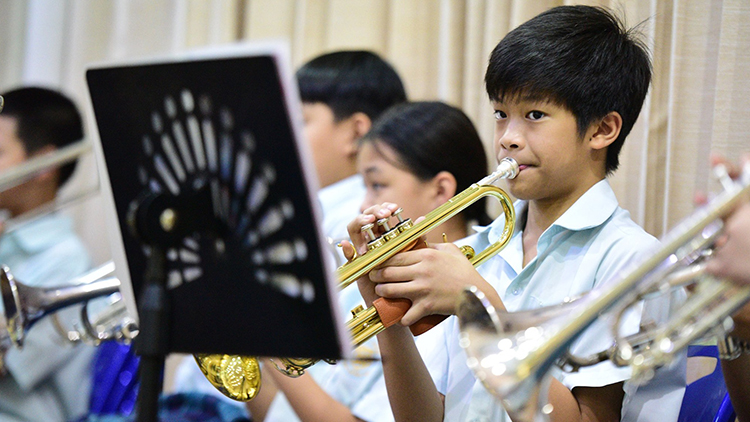
M.I. activities adopt the Theory of Multiple Intelligences developed by Dr.Howard Gardner. This theory proposes that each individual has different potentials and different skills. The Multiple Intelligences Theory consists of 8 Intelligences:
The school has used the M.I. Theory to discover different abilities in each student continuously from Kindergarten to Secondary Level. Student’s talents will be evident by the end of Primary school and will be supported in the Secondary level, which will be emphasized on a particular skill, not general as in Primary School Years.

M.I. Activities in Primary School Year 1 - 3
allow students to discover their strength in each of the 8 Intelligences along with critical thinking developments. These skills are essential for their higher school years. No particular intelligence will be emphasized in Primary School years.
M.I. Activities in Primary School Year 4
are divided into bases according to each Intelligence. Students will take turns attending all bases in order to discover their interests and talents. They will be observed closely by their teachers who will collect information and evaluate each student in each Intelligence base.
Students in Primary School Year 5 - 6
are able to select two Intelligence bases according to their interests. This will allow students to discover their talents. Moreover, the Intelligence bases for students in Primary School Year 5 - 6 will permit students to practice critical thinking skills and develop their talents further.
M.I. Activities are not only additional activities. It has a significant role in discovering oneself. Students will acknowledge their strength and appreciate themselves. They can be proud of their talents and continue improving their skills. Some may become highly efficient and turn their talents to profession.
